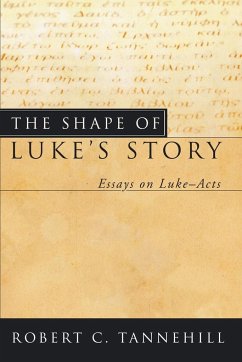The conclusion of Luke-Acts is regarded as one of the most important chapters of Luke's two-volume work. Several significant Lukan themes are found in Acts 28, all of which make some contribution to the purpose and aim of the author in writing Luke-Acts: the Gentile mission, the triumph of God's Word, and the relationship of Christianity with Judaism and Rome. Acts 28 contains many historical problems that have been debated for centuries, including the "we" statements, the figure of Paul in Acts 28, and the abrupt-ending. Puskas compares the conclusion of Acts with other important chapters of Luke-Acts: the introduction of the Gospel, the conclusion of Acts, the "defense of Paul" chapters, as well as other passages. In this significant chapter of Acts 28 there are still fundamental problems of exegesis that need to be addressed: What is the literary function of Acts 28? What is Luke trying to tell his readers in the text?
Hinweis: Dieser Artikel kann nur an eine deutsche Lieferadresse ausgeliefert werden.
Hinweis: Dieser Artikel kann nur an eine deutsche Lieferadresse ausgeliefert werden.









